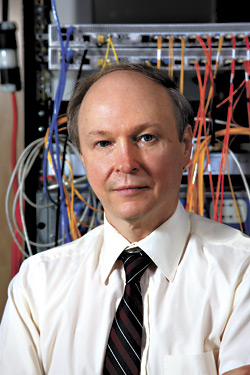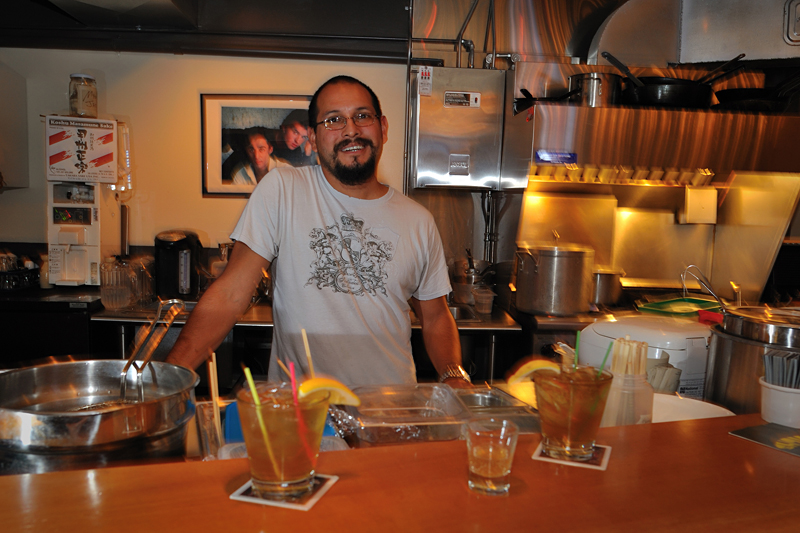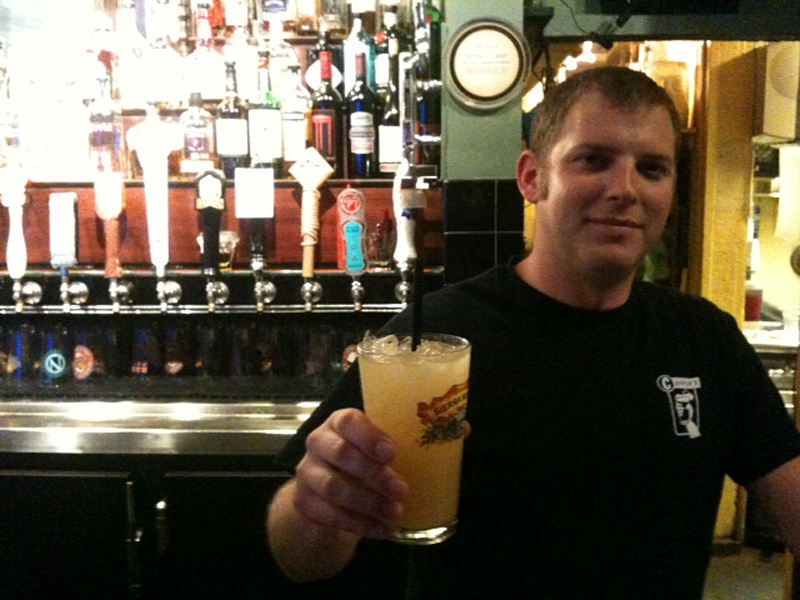What if, instead of returning and begging forgiveness, the prodigal son picked up a group of investors, returned to his father’s farm, and informed him that he was starting a more advanced egg-production operation across the street? Len Bosack may just be that prodigal son; he founded Cisco in 1984 with other Stanford computer nerds, but left in 1990 after his then-wife was fired. Now he’s back and ready to take on the company he once built.
After leaving San Francisco nearly 18 years ago, Bosack holed up in Redmond, creating a company called XKL with a small coterie of employees, determined to push the Internet as far as it could go. The answer, he believes, is in fiber. This year, Bosack announced the creation of a connecter that allows smaller networks to tap into existing fiber cables with a device about the size of a pizza box.
As Bosack explains, fiber cables have far more bandwidth than the lines currently used for sending information. And in terms of social dependencies, he adds, “Bandwidth, to an extent, is better than selling drugs.”
The key, Bosack says, is the miles of fiber cables that were laid on the assumption that all computing would soon be done that way, rather than through phone companies, which is generally how it works these days. This unused fiber, he says, is readily available in most major cities: “There’s almost nothing in downtown Seattle that doesn’t have reasonable access.”
Computer networks, whether at an office park or across an ocean, need bandwidth to function. If everyone at work is simultaneously watching a baby panda sneezing on YouTube, the whole network slows down as space runs out. But with fiber cables, “Imagine a system going between Los Angeles and New York….You can have the entire adult population of L.A. speak with the entire population of New York nonstop,” Bosack says, “and you still have a lot of bandwidth left over.”
The University of Washington recently announced it would be using XKL to help the computers on campus communicate with each other more efficiently. But this kind of networking is only a small part of what his former company does. “Cisco is so big that they must solve everybody’s communication problems,” Bosack says. But perhaps someday, thanks to fiber, people everywhere can simultaneously share the joy of kittens running into sliding glass doors.







